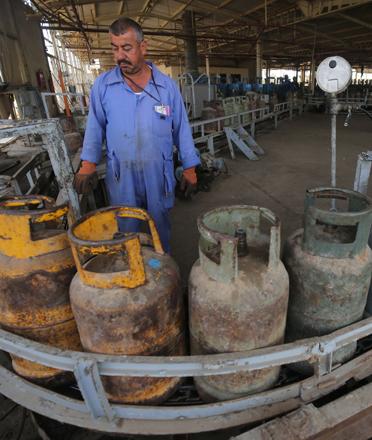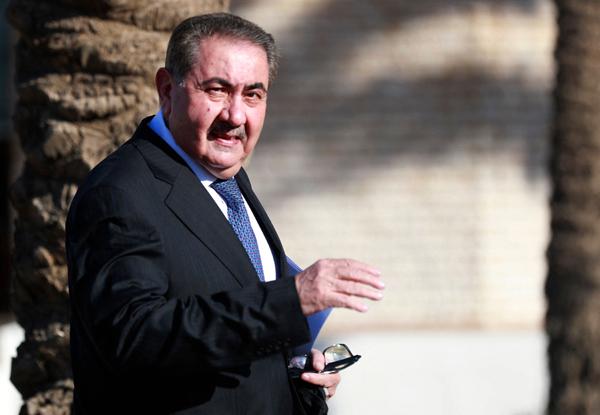You are here
Iraq to receive $5.4 billion IMF standby loan
By Agencies - May 19,2016 - Last updated at May 19,2016

Iraqi workers are seen at the Taji gas plant, 20km north of Baghdad, on Wednesday (AFP photo)
AMMAN — Iraq has reached a $5.4 billion standby loan agreement (SBA) with the International Monetary Fund (IMF) that could unlock $15 billion more in international assistance over the next three years, Iraq's Finance Minister Hoshiyar Zebari said on Thursday.
The IMF standby arrangements allow the fund to respond quickly to countries’ external financing needs, and to support policies designed to help them emerge from crisis, with lending tailored to member countries' needs.
The IMF $5.4 billion loan to Iraq will have an annual interest rate of 1.5 per cent, Iraq's Central Bank Governor Ali Al Alak said at a press conference, following a week of talks with IMF officials in Jordan, Reuters reported.
At the press conference, Alak did not state the loan's tenure.
The IMF deal will allow Iraq to secure additional financial aid of around $15 billion over the next three years, including securing international bonds, according to Zebari.
The deal was conditional on reducing Iraq's budget deficit and other unspecified measures, he said.
Iraq, a major OPEC exporter, is planning to lower its oil price forecast, widening its current fiscal deficit of 24 trillion Iraqi dinars ($21 billion) by several billion dollars.
Christian Josz, the head of the IMF's Iraq mission, told reporters the agreement was an important first step that would give confidence to other donors to extend more financing.
The agreement still needs the approval of the IMF board which meets in June.
Iraq's oil-reliant economy has been knocked hard by plummeting oil prices in international markets.
The drop has wreaked havoc on the country's national budget, financed almost entirely by oil revenues.
Large-scale landgrabs by the extremist group (Daesh) since 2014 exacerbated economic decline, forcing the Iraqi government to divert large sums to fighting the militants.
In 2016, Iraq's budget stood at around $90 billion, with a deficit of about $20.5 billion.
The government hopes to narrow the spending gap with loans from local and international lenders.
Related Articles
BAGHDAD — Iraq's parliament dismissed the finance minister after a no-confidence vote on Wednesday, a move that risks further upsetting the
Iraq's prime minister called on Thursday for "patience" while the government implements economic reforms that include restructuring of many state-owned companies, saying the plan would deliver growth and development.
BAGHDAD — Iraq's supreme court on Sunday ruled out a bid by veteran politician Hoshyar Zebari to run for president after a complaint filed a
















